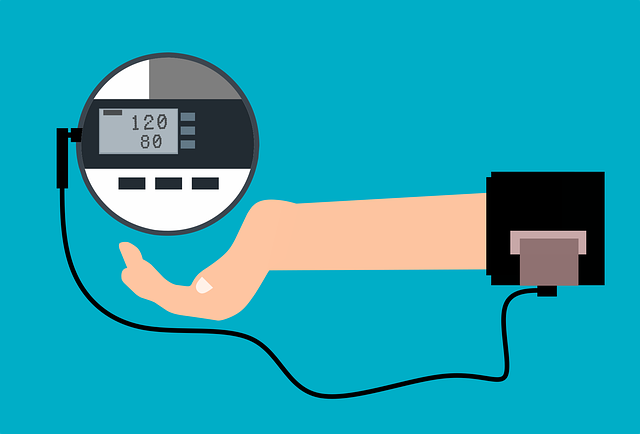A thyroid blood test, vital for diagnosing and managing thyroid disorders, requires fasting for 8-12 hours. On the day of the test, a healthcare provider draws a small sample from your arm, analyzed for TSH, T4, and T3 levels, crucial indicators of thyroid health. Financial barriers to these tests are being addressed through online clinics, telemedicine, and discounted rates, enabling early detection and improving public health. Efficient lab practices, modern equipment, EHRs, optimized scheduling, skilled technologists, and digital communication ensure quick results. Understanding test results helps gauge thyroid health, guiding treatment decisions for conditions like hypothyroidism and hyperthyroidism.
“Uncover the power of affordable and efficient thyroid blood test services, essential tools for maintaining optimal health. This comprehensive guide navigates the often-misunderstood world of thyroid testing, offering insights into what to expect and prepare for. We explore uncovering affordable options, ensuring a streamlined process from start to finish, and interpreting your results for a clearer picture of your thyroid health. In today’s digital era, access to these services should be effortless, and we’re here to make that happen.”
- Understanding Thyroid Blood Tests: What to Expect and Prepare For
- Uncovering Affordable Options: Making Thyroid Testing Accessible
- Ensuring Efficiency: Streamlining the Process for Quick Results
- Interpreting Results: Deciphering Your Thyroid Health Snapshot
Understanding Thyroid Blood Tests: What to Expect and Prepare For
A thyroid blood test is a crucial tool for diagnosing and managing thyroid-related disorders. This simple procedure involves drawing a small sample of your blood to check for specific hormones and antibodies related to your thyroid gland’s function. Understanding what to expect can help reduce anxiety and ensure a smooth experience.
Before the test, you’ll be asked to fast for a certain period, typically 8-12 hours, to ensure accurate results. On the day of the test, a healthcare professional will clean your skin and insert a needle to draw blood from a vein, usually in your arm. The process is quick and generally painless. You may feel a brief sting or pinch, but it should be over in seconds. The sample is then sent to a laboratory for analysis, where technicians measure levels of thyroid-stimulating hormone (TSH), thyroxine (T4), triiodothyronine (T3), and possibly other related hormones or antibodies. These results will provide valuable insights into your thyroid’s health and help determine the next steps in your medical journey.
Uncovering Affordable Options: Making Thyroid Testing Accessible
Uncovering affordable options is a significant step in making thyroid testing more accessible to a wider population. Many individuals often face financial barriers when it comes to healthcare, and this is especially true for specialized tests like the thyroid blood test. However, with growing awareness and advancements in medical technology, several initiatives have been taken to reduce costs without compromising on quality. Online clinics and telemedicine services, for instance, offer convenient and cost-effective solutions, allowing patients to consult with healthcare professionals remotely and obtain necessary lab tests at lower prices.
Additionally, some medical facilities and laboratories provide discounted rates or bundle packages, especially when multiple tests are required. These strategies ensure that individuals who might otherwise avoid thyroid testing due to financial constraints can now access essential health information. By making these services more affordable, there is a greater likelihood of early detection and management of thyroid-related disorders, ultimately improving overall public health.
Ensuring Efficiency: Streamlining the Process for Quick Results
Ensuring efficiency in thyroid blood test services is paramount for providing quick and accurate results. Streamlining the process involves several key steps. First, utilizing modern, high-precision lab equipment ensures that each test is conducted with maximum efficiency and minimal error. Additionally, implementing electronic health record (EHR) systems allows for rapid data entry and retrieval, reducing paperwork and potential delays.
Further enhancements include optimizing scheduling to minimize wait times and employing trained, experienced technologists who can efficiently draw blood samples while maintaining patient comfort. Additionally, integrating digital communication channels enables timely follow-up with patients regarding their test results, enhancing overall efficiency in the thyroid blood test process.
Interpreting Results: Deciphering Your Thyroid Health Snapshot
When you receive your thyroid blood test results, understanding what they mean is crucial. The thyroid-stimulating hormone (TSH) level is a key indicator; normal levels typically range between 0.4 and 4.0 mIU/L. If your TSH falls outside this range, it could signal a thyroid condition. For example, low TSH (hypothyroidism) may indicate an overactive thyroid, while high TSH (hyperthyroidism) suggests underactivity.
Your test results will also include measurements for thyroxine (T4) and triiodothyronine (T3), the primary hormones produced by your thyroid. Normal levels of T4 are usually between 5.5 and 12 mcg/dL, while normal T3 levels range from 0.6 to 2.0 ng/mL. Deviation from these ranges can provide further insights into your thyroid health and guide appropriate treatment decisions for any underlying conditions.
Accessing affordable and efficient thyroid blood test services is now more feasible than ever. By understanding the importance of these tests, exploring cost-effective options, and streamlining the process, individuals can take control of their thyroid health. With quick results and interpretative guidance, navigating the landscape of thyroid testing becomes less daunting. Remember that early detection and management are key to maintaining optimal thyroid function.
